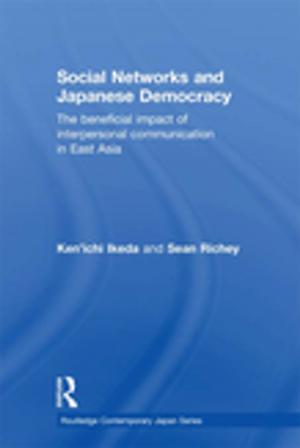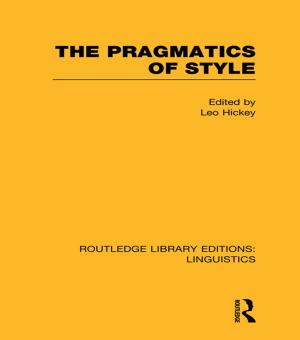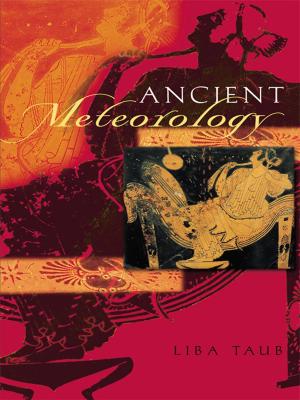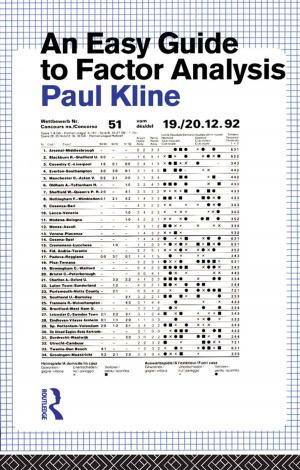Reflexive Ethnography
A Guide to Researching Selves and Others
Nonfiction, Social & Cultural Studies, Social Science, Anthropology| Author: | Charlotte Aull Davies | ISBN: | 9781136763496 |
| Publisher: | Taylor and Francis | Publication: | August 6, 2012 |
| Imprint: | Routledge | Language: | English |
| Author: | Charlotte Aull Davies |
| ISBN: | 9781136763496 |
| Publisher: | Taylor and Francis |
| Publication: | August 6, 2012 |
| Imprint: | Routledge |
| Language: | English |
Reflexive Ethnography is a unique guide to ethnographic research for students of anthropology and related disciplines. It provides practical and comprehensive guidance to ethnographic research methods, but also encourages students to develop a critical understanding of the philosophical basis of ethnographic authority.
Davies examines why reflexivity, at both personal and broader cultural levels, should be integrated into ethnographic research and discusses how this can be accomplished for a variety of research methods. This revised and updated second edition includes:
- a new chapter on internet-based research and ‘interethnography’
- chapters on selection of topics and methods, data collection and analysis, and ethics and politics of research
- practical advice on writing up ethnographic study
- new and updated research examples.
Postmodernist relativism can lead to an over-emphasis on reflexivity that denies the possibility of social research. Reflexive Ethnography utilises postmodernist insights – incorporation of different standpoints, exposure of the intellectual tyranny of meta-narratives – but proposes that reflexive ethnographic research be undertaken from a realist perspective. Reflexive Ethnography will help students to use and understand ethnographic research practices that fully incorporate reflexivity without abandoning claims to develop valid knowledge of social reality.
Reflexive Ethnography is a unique guide to ethnographic research for students of anthropology and related disciplines. It provides practical and comprehensive guidance to ethnographic research methods, but also encourages students to develop a critical understanding of the philosophical basis of ethnographic authority.
Davies examines why reflexivity, at both personal and broader cultural levels, should be integrated into ethnographic research and discusses how this can be accomplished for a variety of research methods. This revised and updated second edition includes:
- a new chapter on internet-based research and ‘interethnography’
- chapters on selection of topics and methods, data collection and analysis, and ethics and politics of research
- practical advice on writing up ethnographic study
- new and updated research examples.
Postmodernist relativism can lead to an over-emphasis on reflexivity that denies the possibility of social research. Reflexive Ethnography utilises postmodernist insights – incorporation of different standpoints, exposure of the intellectual tyranny of meta-narratives – but proposes that reflexive ethnographic research be undertaken from a realist perspective. Reflexive Ethnography will help students to use and understand ethnographic research practices that fully incorporate reflexivity without abandoning claims to develop valid knowledge of social reality.















